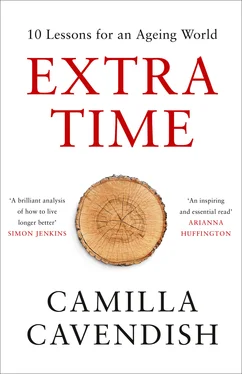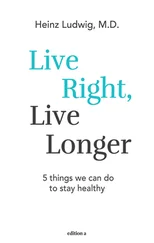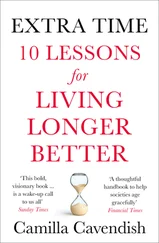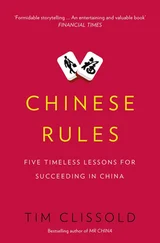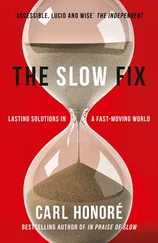Okinawa is one of the Blue Zones, the parts of the world identified by researcher Dan Buettner, where people have low rates of chronic disease and live exceptionally long lives. While it’s not possible to distil a single magic ingredient, common to all Blue Zones are plant-based diets with very little processed food, strong friendships and a sense of purpose, lots of sleep and strenuous physical activity.
We can’t all live on islands, getting up with the sun and tilling the soil. But the Blue Zones do suggest that what we think of as ‘normal’ may be a very poor version of what our natural selves could be. And that is incredibly positive.
Why I Wrote This Book
I started writing this book in 2016, after my beloved father died. He had dreaded getting ‘old’, so much so that it whittled down his life much too early. I remember his gloom on his fiftieth birthday. As we sat together on his favourite cliff in Cornwall, watching the waves break below, he said he felt that everything was ‘over’. I was a child, and 50 was older than I could imagine. But I did notice, from that point on, that my father started to think of himself in a different way. He would say ‘Oh, I’m too old for that’ with a sigh. After my mother left him, he refused to get a cat, although he adored them, on the basis that it might outlive him and be left homeless. He was 58 when he got divorced, and missed our two cats, Arthur and Merlin, most terribly (they went with my mother in the divorce, along with a hotly contested dining table). He ended up living, in largely excellent health, to 86. And he lived all that time without cats, who could have kept him company.
After he died, I couldn’t stop thinking about the way age can become a barrier.
My mother lied about her age until she was 72, because she was terrified she would lose her job as a secretary, and default on the mortgage she took out after the divorce. This created a huge burden of deception. She never dared join the company pension scheme for fear of being found out. She also hated the feeling that, as her looks dwindled, she was becoming invisible. She refused to let my children call her ‘Granny’, or refer to her in any way as a grandmother, which made things awkward between them.
In conventional terms, my parents were ‘old’ – almost 40 – by the time they conceived me. They’d met at Oxford University in the 1950s, she a glamorous American who’d grown up in Greenwich, Connecticut, he the bookish son of an English vicar. Their world was an intellectual, bohemian one of artists and academics for whom work was passion, savings in the bank negligible and ‘retirement’ anathema. My father dictated his final article for History Today magazine from a bed in Charing Cross Hospital. My mother was campaigning to help a friend get his job back when she had her final heart attack.
My thoughts about my parents chimed with my growing professional awareness of our fatalism about older people. As a journalist, and through my work for the Department of Health, I have met many compassionate nursing and care staff struggling against tick-box cultures and low pay. 5When I sat on the board of our national hospital and care-home regulator, 6it was clear that patients were being warehoused in post-war silos. As head of the Number 10 Policy Unit, I worked to introduce the sugar tax and other measures to combat obesity, a condition which is making people old before their time, but is portrayed as a ‘choice’. And I felt that media excitement about living to 100 jarred with a lack of ambition about what that should mean.
I have written this book to challenge our notions of ageing, and find out what different countries are doing to build a new world for Extra Time. I have been privileged to meet many wonderful pioneers, who I think of as ‘rebels against fate’, who are refusing to dress demurely, stop work or be carted off to care homes.
The rebels against fate intuitively understand that something fundamental has changed. They are all saying, in different ways, that age should not define us. My goal in this book is to spread their message, to persuade you to contemplate your own future before it’s too late, and to try to change the pattern of thinking in our societies about what we mean by ‘old’. Because it sure as hell isn’t 50, whatever my father thought. Yet much of the data about the ‘old’ still starts at 50 – when some of us will be only halfway through our lives.
This book is not a rose-tinted rhapsody. I don’t predict that we will all be skipping our way cheerfully to 120. In fact, I’ve written it partly as a warning.
Living longer is not a blessing, in my view, unless it is living better for longer. Neither of my parents had any desire to live to 100. What they cared about was living as full a life as possible, and then hopefully checking out as fast as possible.
One of the most shocking things I have confirmed, in researching this book, is just how drastically the futures of the rich and poor, the highly educated and the less educated are diverging. Only Japan has begun to effectively address the health problems which mean that some people are what the Japanese call ‘Young-Old’ at 80, while others are ‘Old-Old’ at 65. For me, this is one of the biggest ethical challenges of our time. If we don’t fix it, the rich, the educated and the lucky may still be thriving at 90 – but they will be living in societies which cannot afford to look after those who are less fortunate. We must prevent that from happening: since one measure of a civilised society is how it treats its elderly.
A Different, Better World
This book spans many aspects of a huge topic. I have tried to break it down into ten lessons, each of which reflects what I have learned from experts, academics and policymakers, but also from those on the frontline. I’ve interviewed biologists who are challenging the very notion that ageing is inevitable; neuroscientists who are finding ways to stave off brain decline; and social entrepreneurs who are working to bring the generations together, rather than letting them drift apart.
I begin by surveying the demographic trends, longer lives and plummeting birth rates, which pose a profound and unexpected challenge to our species. Voluntary childlessness was always presumed to be evolutionarily impossible. But birth rates are falling so fast that some countries will soon shrink. China is growing old before it gets rich. If America stays vibrant, this could alter the geopolitical balance of power.
Almost without noticing, we have created an entirely new stage of life – an extended middle age. I look at this new stage in Chapter 2, and at how the media, and governments, send the wrong signals. I look at alternative ways to compute healthy lifespan, and at the widening gap between the rich and educated, and the less fortunate. In Chapter 3I explore what true biological ageing might look like, without junk food and sedentary lifestyles, and argue that obesity is making some people old before their time. I am not advocating any particular product or medicine in this book, but I do suggest that the evidence for aerobic exercise, and against sugar, is compelling.
Some Silicon Valley billionaires are on a quest to find immortality. Their research is fascinating. Especially intriguing are the ‘super-centenarians’, whose risk of dying levels off after the age of 105. But my chief interest is in improving life, not prolonging it. In Chapter 5I describe developments in neuroscience which show that we are never too old to learn. I look at what kinds of brain training might help keep us sharp, and at the ‘cognitive reserve’ which may be protective against Alzheimer’s. In Chapter 6I hunt down pills which claim to have anti-ageing properties, harnessing genes and proteins in our bodies. These discoveries raise what may sound like an odd question: should we treat ageing as a disease? But in another decade it may seem eccentric to treat one illness at a time, rather than to use the underlying circuits in our bodies to ward off many different conditions.
Читать дальше
